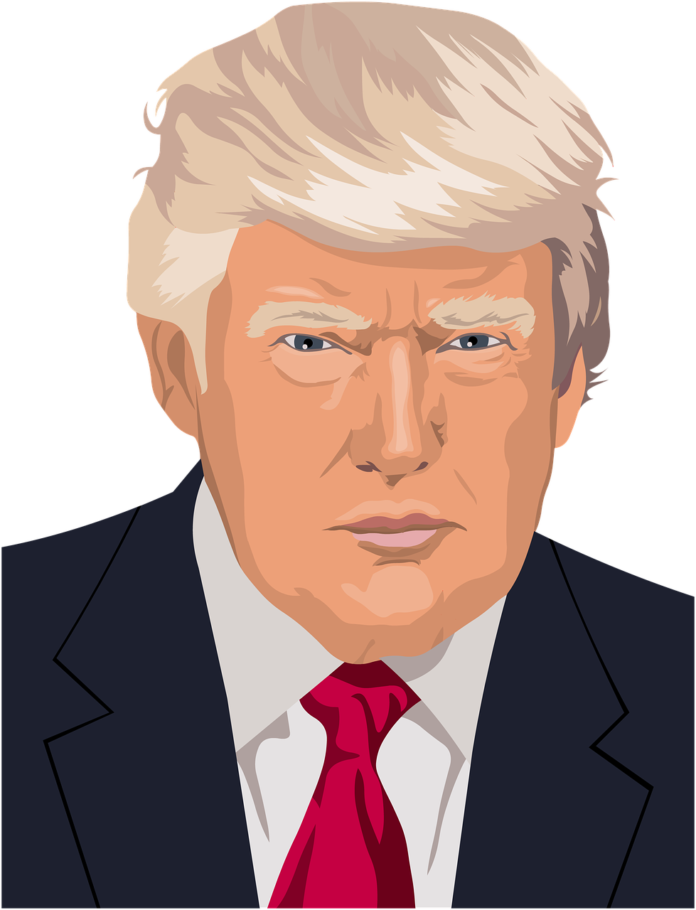By Ian Golan
As the possibility of Trump returning to the White House looms, Ukraine’s future hangs in the balance. In all likelihood, if Trump wins, Ukraine will lose the war or be forced into a crippling peace deal. Europe must prepare for an absence of American leadership on the world stage.
Trump has no foreign policy. He is a foreign policy shapeshifter, malleable to his surroundings. If re-elected president, Trump will sell out America’s alliances with Europe. European leaders must face up to the reality of what a second Trump term would mean for Ukraine and the broader region and start to prepare for such a scenario.
To this day, many conservative politicians in Europe support Trump, often citing the fact that wars in Ukraine and Israel only started while Joe Biden occupied the White House. They theorise that Trump’s perceived (or actual) unpredictability is making other world leaders more risk-averse, while Biden’s perceived meekness makes them more risk-taking.
It’s not just fringe right-wing parties which subscribe to this view. One of the most prominent of these voices remains Boris Johnson, a moderate member of Britain’s centre-right Conservative Party who led the world in supporting Ukraine after Russia’s invasion in 2022. Johnson nonetheless believes Trump’s “willingness to use force and sheer unpredictability is a major deterrent to the enemies of the West”.
This is a fundamental error of judgement which leaves many European countries militarily unprepared for what might come this November. Even if their analysis rang true before 2020, a second Trump term would be much more predictable, thanks to shifts in those Trump aligns himself with on foreign policy.
While Trump used to have classical Republicans in his orbit who would push him in the direction of a more hawkish foreign policy, if he is elected president, in January he will be accompanied to the White House by JD Vance, not Mike Pence. Vance, perhaps along with other radical voices like Laura Loomer, is likely to whisper in Trump’s ear pro-Kremlin narratives which have been carefully infused by Russia into the American right in the past two years, through pet projects like Tenet Media.
This means Europe has no time to spare. The danger is grave. Putin will know exactly what to expect of Trump. The novelty and unpredictability are gone. What is new is the influence of much more powerful pro-Russian narrative spin. Trump will desperately try to showcase to his voters that he is still the arch-dealmaker, capable of bringing peace to the world. He will thus strike a peace agreement with Putin, whatever the cost of that peace may be.
And it will be as pricey as it can be. Putin has no reason to make concessions when he knows the American side is unwilling to render aid to Ukraine and desperate for a deal. Trump is on record saying “any deal, even the worst deal, would have been better than what we have right now.” What Ukraine will get, then, is a disastrous, perpetually crippling peace deal which will turn the war into a smouldering conflict. The peace will be ephemeral and the Russian threat will loom over Europe once again.
Europe needs to start preparing in earnest for Trump. Although Kamala Harris has recently enjoyed an upswing in the polls and the odds seem to be currently in her favour, the election is as close to a tie as ever. European politicians, especially conservatives, must not disregard the threat of Trump abandoning America’s alliances. Europe needs to take steps to become more self-sufficient in its defence. Insufficient national spending on defense may also become an excuse for Trump to pursue isolationism, as he has been threatening NATO countries who were not spending the 2% of GDP on defense for years already.
Trump can't even condemn Putin for invading Ukraine. He instead blames Zelensky, claiming Zelensky ''instigated'' the war.
Total shameless lie considering Zelensky came to power as a peace candidate and desperately tried over and over again to negotiate with Putin before the… pic.twitter.com/QW4ydY4RNf
— Drew Pavlou 🇦🇺🇺🇸🇺🇦 (@DrewPavlou) October 18, 2024
As things stand, the situation is dire. In Poland, ammunition reserves are depleted and would prove wildly insufficient in the event of an attack. Many Western countries lack tanks, aircraft, and armoured vehicles, as they were supplied to Ukraine.
European states must immediately expand their defence budgets, even if that means cuts to other areas of public services. Europe must import military supplies from the US and the rest of the world before there is a change of administration, which may block such moves.
If Trump’s win does not materialise, this weaponry could be sent to Ukraine over a longer period, or defence spending could be reined in thereafter to make up for the extra spending.
But in the current circumstances, it is crucial to strengthen resources to defend Europe against Russia, just in case America turns its back. If such a scenario comes to pass, there will be no time for sourcing weapons. They will be needed immediately. Any shipments, especially those of more complex weapon systems, could take long months to procure. This does not however mean we need to build a European army, as this may also be perceived by the White House as a hostile move.
Europe needs to be ready to support Ukraine in January, even if America doesn’t. European conservatives, especially those who see Trump as an ally in the global culture war, ought to put aside their unfounded optimism about his foreign policy and get to work.
Ian Golan is a writer based in Helsinki. Ian is a writing fellow with Young Voices Europe and author of the novel “Flugjagd,” which explores the war in Ukraine. He serves as the national coordinator for Students for Liberty in Finland and is the executive publisher of SpeakFreely Magazine.
Disclaimer: www.BrusselsReport.eu will under no circumstance be held legally responsible or liable for the content of any article appearing on the website, as only the author of an article is legally responsible for that, also in accordance with the terms of use.













